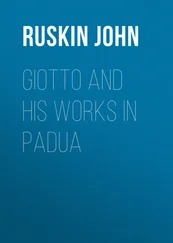John Ruskin - Selections From the Works of John Ruskin
Здесь есть возможность читать онлайн «John Ruskin - Selections From the Works of John Ruskin» — ознакомительный отрывок электронной книги совершенно бесплатно, а после прочтения отрывка купить полную версию. В некоторых случаях можно слушать аудио, скачать через торрент в формате fb2 и присутствует краткое содержание. Жанр: foreign_antique, foreign_home, literature_19, visual_arts, на английском языке. Описание произведения, (предисловие) а так же отзывы посетителей доступны на портале библиотеки ЛибКат.
- Название:Selections From the Works of John Ruskin
- Автор:
- Жанр:
- Год:неизвестен
- ISBN:нет данных
- Рейтинг книги:4 / 5. Голосов: 1
-
Избранное:Добавить в избранное
- Отзывы:
-
Ваша оценка:
- 80
- 1
- 2
- 3
- 4
- 5
Selections From the Works of John Ruskin: краткое содержание, описание и аннотация
Предлагаем к чтению аннотацию, описание, краткое содержание или предисловие (зависит от того, что написал сам автор книги «Selections From the Works of John Ruskin»). Если вы не нашли необходимую информацию о книге — напишите в комментариях, мы постараемся отыскать её.
Selections From the Works of John Ruskin — читать онлайн ознакомительный отрывок
Ниже представлен текст книги, разбитый по страницам. Система сохранения места последней прочитанной страницы, позволяет с удобством читать онлайн бесплатно книгу «Selections From the Works of John Ruskin», без необходимости каждый раз заново искать на чём Вы остановились. Поставьте закладку, и сможете в любой момент перейти на страницу, на которой закончили чтение.
Интервал:
Закладка:
Therefore we see that the spirit of truth must guide us in some sort, even in our enjoyment of fallacy. Coleridge's fallacy has no discord in it, but Pope's has set our teeth on edge. Without farther questioning, I will endeavour to state the main bearings of this matter.
The temperament which admits the pathetic fallacy, is, as I said above, that of a mind and body in some sort too weak to deal fully with what is before them or upon them; borne away, or over-clouded, or over-dazzled by emotion; and it is a more or less noble state, according to the force of the emotion which has induced it. For it is no credit to a man that he is not morbid or inaccurate in his perceptions, when he has no strength of feeling to warp them; and it is in general a sign of higher capacity and stand in the ranks of being, that the emotions should be strong enough to vanquish, partly, the intellect, and make it believe what they choose. But it is still a grander condition when the intellect also rises, till it is strong enough to assert its rule against, or together with, the utmost efforts of the passions; and the whole man stands in an iron glow, white hot, perhaps, but still strong, and in no wise evaporating; even if he melts, losing none of his weight.
So, then, we have the three ranks: the man who perceives rightly, because he does not feel, and to whom the primrose is very accurately the primrose, 62 62 See Wordsworth's Peter Bell , Part I:— A primrose by a river's brim A yellow primrose was to him, And it was nothing more.
because he does not love it. Then, secondly, the man who perceives wrongly, because he feels, and to whom the primrose is anything else than a primrose: a star, or a sun, or a fairy's shield, or a forsaken maiden. And then, lastly, there is the man who perceives rightly in spite of his feelings, and to whom the primrose is for ever nothing else than itself—a little flower apprehended in the very plain and leafy fact of it, whatever and how many soever the associations and passions may be that crowd around it. And, in general, these three classes may be rated in comparative order, as the men who are not poets at all, and the poets of the second order, and the poets of the first; only however great a man may be, there are always some subjects which ought to throw him off his balance; some, by which his poor human capacity of thought should be conquered, and brought into the inaccurate and vague state of perception, so that the language of the highest inspiration becomes broken, obscure, and wild in metaphor, resembling that of the weaker man, overborne by weaker things.
And thus, in full, there are four classes: the men who feel nothing, and therefore see truly; the men who feel strongly, think weakly, and see untruly (second order of poets); the men who feel strongly, think strongly, and see truly (first order of poets); and the men who, strong as human creatures can be, are yet submitted to influences stronger than they, and see in a sort untruly, because what they see is inconceivably above them. This last is the usual condition of prophetic inspiration.
I separate these classes, in order that their character may be clearly understood; but of course they are united each to the other by imperceptible transitions, and the same mind, according to the influences to which it is subjected, passes at different times into the various states. Still, the difference between the great and less man is, on the whole, chiefly in this point of alterability . That is to say, the one knows too much, and perceives and feels too much of the past and future, and of all things beside and around that which immediately affects him, to be in any wise shaken by it. His mind is made up; his thoughts have an accustomed current; his ways are stedfast; it is not this or that new sight which will at once unbalance him. He is tender to impression at the surface, like a rock with deep moss upon it; but there is too much mass of him to be moved. The smaller man, with the same degree of sensibility, is at once carried off his feet; he wants to do something he did not want to do before; he views all the universe in a new light through his tears; he is gay or enthusiastic, melancholy or passionate, as things come and go to him. Therefore the high creative poet might even be thought, to a great extent, impassive (as shallow people think Dante stern), receiving indeed all feelings to the full, but having a great centre of reflection and knowledge in which he stands serene, and watches the feeling, as it were, from far off.
Dante, in his most intense moods, has entire command of himself, and can look around calmly, at all moments, for the image or the word that will best tell what he sees to the upper or lower world. But Keats and Tennyson, and the poets of the second order, are generally themselves subdued by the feelings under which they write, or, at least, write as choosing to be so; and therefore admit certain expressions and modes of thought which are in some sort diseased or false.
Now so long as we see that the feeling is true, we pardon, or are even pleased by, the confessed fallacy of sight which it induces: we are pleased, for instance, with those lines of Kingsley's above quoted, not because they fallaciously describe foam, but because they faithfully describe sorrow. But the moment the mind of the speaker becomes cold, that moment every such expression becomes untrue, as being for ever untrue in the external facts. And there is no greater baseness in literature than the habit of using these metaphorical expressions in cool blood. An inspired writer, in full impetuosity of passion, may speak wisely and truly of "raging waves of the sea foaming out their own shame"; 63 63 Jude 13.
but it is only the basest writer who cannot speak of the sea without talking of "raging waves," "remorseless floods," "ravenous billows," etc.; and it is one of the signs of the highest power in a writer to check all such habits of thought, and to keep his eyes fixed firmly on the pure fact , out of which if any feeling conies to him or his reader, he knows it must be a true one.
To keep to the waves, I forget who it is who represents a man in despair desiring that his body may be cast into the sea,
Whose changing mound, and foam that passed away ,
Might mock the eye that questioned where I lay.
Observe, there is not a single false, or even overcharged, expression. "Mound" of the sea wave is perfectly simple and true; "changing" is as familiar as may be; "foam that passed away," strictly literal; and the whole line descriptive of the reality with a degree of accuracy which I know not any other verse, in the range of poetry, that altogether equals. For most people have not a distinct idea of the clumsiness and massiveness of a large wave. The word "wave" is used too generally of ripples and breakers, and bendings in light drapery or grass: it does not by itself convey a perfect image. But the word "mound" is heavy, large, dark, definite; there is no mistaking the kind of wave meant, nor missing the sight of it. Then the term "changing" has a peculiar force also. Most people think of waves as rising and falling. But if they look at the sea carefully, they will perceive that the waves do not rise and fall. They change. Change both place and form, but they do not fall; one wave goes on, and on, and still on; now lower, now higher, now tossing its mane like a horse, now building itself together like a wall, now shaking, now steady, but still the same wave, till at last it seems struck by something, and changes, one knows not how,—becomes another wave.
The close of the line insists on this image, and paints it still more perfectly,—"foam that passed away." Not merely melting, disappearing, but passing on, out of sight, on the career of the wave. Then, having put the absolute ocean fact as far as he may before our eyes, the poet leaves us to feel about it as we may, and to trace for ourselves the opposite fact,—the image of the green mounds that do not change, and the white and written stones that do not pass away; and thence to follow out also the associated images of the calm life with the quiet grave, and the despairing life with the fading foam—
Читать дальшеИнтервал:
Закладка:
Похожие книги на «Selections From the Works of John Ruskin»
Представляем Вашему вниманию похожие книги на «Selections From the Works of John Ruskin» списком для выбора. Мы отобрали схожую по названию и смыслу литературу в надежде предоставить читателям больше вариантов отыскать новые, интересные, ещё непрочитанные произведения.
Обсуждение, отзывы о книге «Selections From the Works of John Ruskin» и просто собственные мнения читателей. Оставьте ваши комментарии, напишите, что Вы думаете о произведении, его смысле или главных героях. Укажите что конкретно понравилось, а что нет, и почему Вы так считаете.












